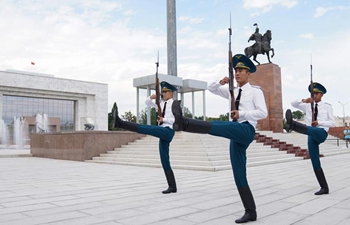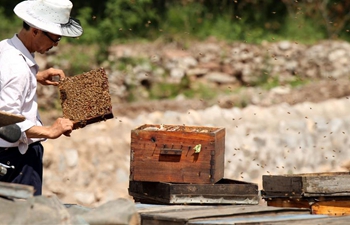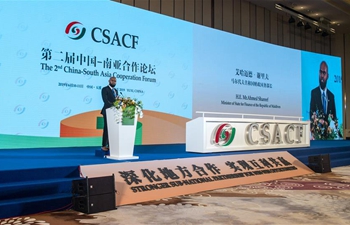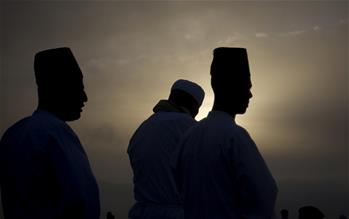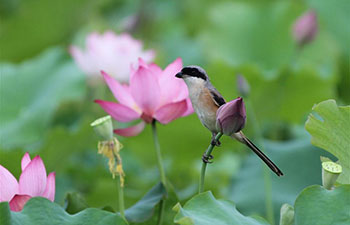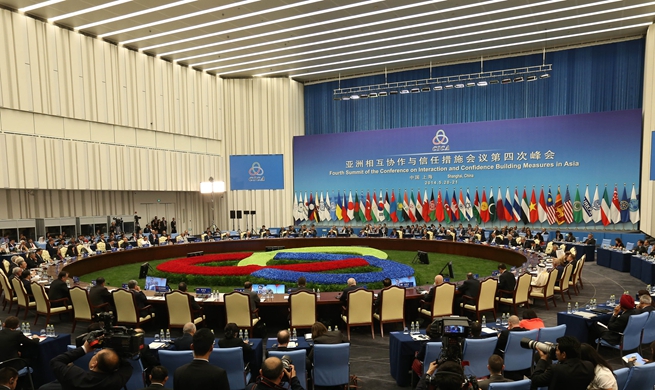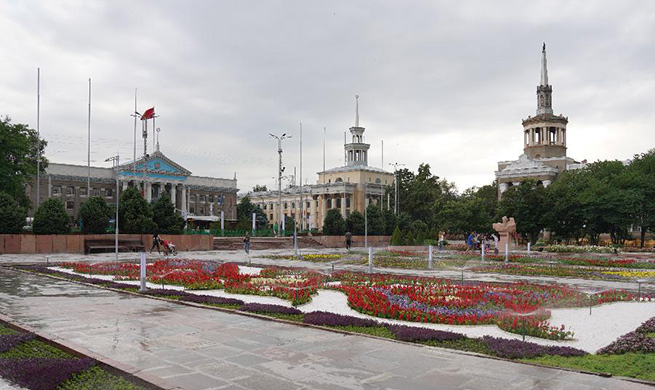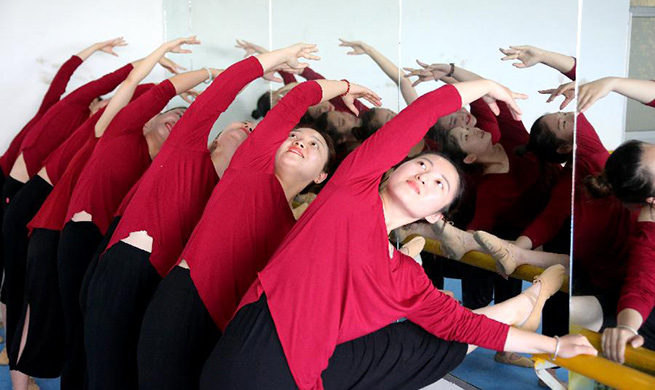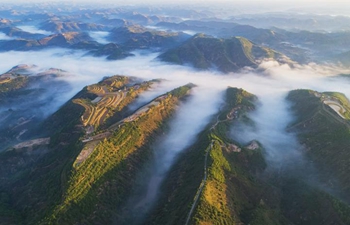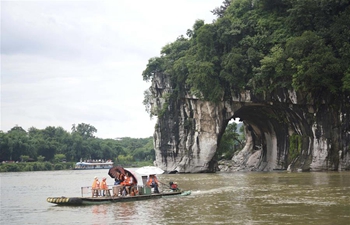by Julia Pierrepont III
LOS ANGELES, June 10 (Xinhua) -- Outside the Pasadena Civic Auditorium in Los Angeles County, the melodic notes of voices raised in song echoed up from an obscure grate on the street, as a cast of opera singers did their warm-up exercises for their performance.
The singers would perform "Voyage To the East - A Fearless Buddhist Master's Mission to Japan," an original Chinese contemporary opera which reveals monk Jianzhen's journey to spread Buddhism and Chinese culture in Japan.
Jianzhen, also known as Ganjin, who lived from 688 to 763 during the Tang Dynasty (618-907), was invited by the Imperial Court of Japan in 742, the first year of China's Tang Dynasty Tianbao era, to come to their island empire to share advanced spiritual practices with the emperor of Japan and his monks.
The year before, Japanese Emperor Shomu had called for the nationwide establishment of provincial temples throughout Japan and sent emissaries to China in search of a spiritually devout holy man to lead them.
They found Master Jianzhen, who agreed to come, having faith that it was his sworn task in life to risk all to undertake the sacred mission to bring true Buddhist precepts, as well as the Chinese culture, history and engineering techniques to their neighbor to the east.
So began the difficult and perilous journey across the dangerous, typhoon-tossed seas to reach distant Japan, as Jianzhen and his companions suffered through 12 years of failed attempts, involving shipwrecks, arrests for alleged piracy, charges of sorcery, and many other hardships before they reached Japan's shores.
"It's a very inspiring story about the humble, Chinese Buddhist Master Jianzhen, who brought Buddhism and Chinese culture to Japan," said Abbot Hui Dong, leader of the Buddhist Hsi Lai Temple in Hacienda Heights, who helped coordinate the event.
"Nowadays, it's a very inspiring story that we hope people can learn from. I see many conflicts today, but people need to open their minds and hearts and do good to others. If they harm others, it hurts themselves first. Doing good generates positive energy that helps everyone," he said.
Or, as the visionary monk in the play preached, "Turn the moment where good thoughts rise, into eternal good deeds...All things co-exist in harmony, living in bliss."
Grand Sheik Daiyaan Epps El of the Moorish Science Temple of America, who applauded the exchange of culture between the Moors of North Africa and Asia and Europe, attended with a host of African-American congregants from their temple near Baldwin Hills.
"This is a great experience for us. We honor all true and divine prophets: Mohamed, Jesus, Buddha, and Confucius, and our own, Noble Drew Ali. All prophets teach the same message, and that's the message of love," he told Xinhua.
The orchestral and vocal stylings, composed by Tang Jianping with librettos by Feng Baiming and Feng Bilie, and masterfully directed by Xing Shimiao, were distinctly modern in tone, rather than following a more traditional Chinese style, which seemed to appeal to a broader audience.
The cast of Chinese opera singers was led on Saturday night by Tian Haojiang, who was performing the lead role of Jianzhen. Tian is an acclaimed bass who has spent 20 seasons with the New York Metropolitan Opera and has given over 1,400 performances in 50 roles in opera houses all over the world.
"It's an honor for me to perform in this extraordinary piece," Tian told Xinhua in an exclusive interview. "Throughout my career at the Metropolitan Opera and elsewhere, I have performed many operas, mostly Western classics. But this one, about my own country, about Chinese culture and in the Chinese language, I consider to be the crowning achievement of my career."
He was thrilled that modern opera was booming in popularity in China, with more than 100 new theaters commissioned in recent years. He also praised the younger performers, such as Meng Tong, who played the lead role during the Sunday matinee, who were carrying the torch for the next generation.
The set design by Sheng Xiaoying and lighting design by Wu Wei were spare but inspired and visually stunning, layered with clever visuals and subtle multimedia elements. Like the string theory of physics brought to life, entirely different worlds were manifested on stage by the performers manipulating giant, elasticized strings, some stretched taut from floor to ceiling, others, hanging loose and fluttering, attached only at one end.
"The sets were so simple, yet powerful and dramatic - the same with the performances!" Chris Richards, a local American attendee, told Xinhua. "You could feel the powerful spiritual message in your heart before you even read the translation on screen."
His friend, Raymond A., a newcomer to the practice of Buddhism, added, "I've never seen Chinese opera before and this one was incredibly moving and heartwarming."
After its Los Angeles run, the show will also travel to perform on June 22 and 23 in New York City at the David H. Koch Theater in the Lincoln Center, home to the Metropolitan Opera.
